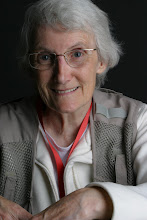Date: Monday, 15 September 2008
Authorship: Elizabeth,What do we want to SAY? = MESSAGE/NARRATIVE
WHO do we want to say it to? = TARGET AUDIENCE(S)WHY do we want to say this to these people? = MOTIVATION
HOW are we going to say it? VISUAL/AUDITORY/KINESTHETHICHOW are we going to make a RECORD of what we do/say? CAMERA/SOUND
MESSAGES/objectives
At the end of this process/performance, those who see the finished product will have an awareness of the following:- • That theatre lights have a potential function in the making of art.
- • That performance art can be enhanced by the use of theatrical lighting
- • That in lighting, less is more (means possibly only one light shining at any one time.
- • That despite being fixed in position, a certain degree of light movement can be created by illusion.
- • That lighting can enhance, and even create an emotional atmosphere
- • That shadows can have a significant role to play in the use of light.
- • That a simple NARRATIVE can demonstrate the above messages.
TARGET AUDIENCE(S)
- • The participants will be the main audience, especially during the performance itself
- • Afterwards a potential audience might be the tutors in college, and fellow students.
- • Website ‘Don’t Eat the Tulips’ have expressed interest in the process of this project
- • If the results are satisfactory, the project might be built on for the DARKLIGHT event early 2009.
What Performers do we need?
- The Walker
- Black stick bearers
- White stick bearer
What Technicians do we need?
Camera person to operate the zoom in cameraLocations: Where will they be?Lights person to manipulate light desk
Sound person to manipulate sound deskProps/Continuity person (to make sure people have what they need next)
Actions: What will they be doing?Walker in the area between stage and seating
Black stick bearer to left of seating, (as seen from walkers perspective)White stick bearer to right of seating (as seen from walkers perspective)
THINGSWalker will be walking; disappears at ‘end’ of walking area, goes backstage, reappears at start again.Uses different styles of walking/stick useage to indicate uphill, downhill, easy, difficult terrain.
Black SB will create shadows using negative cut-outs (perhaps images suggesting steep hills, rocks, )
White SB will create shadows using positive cut-outs ( perhaps flower, butterfly, bird etc)
Props:
2 x Long sticks (one white, one black)Shadow cut-outs:
CostumesButterfly
Flower
MonsterSwinging Weight
Scenery/LocationStick bearers: long white/black gown and paper mask head-dress
Walker; Red kaftan, blue hat, backpack, two walking poles
Minimum – black walls, floor, red seatsLIGHTS
RECORDINGLights Locations
A – WHITE light at Floor-level shining along front edge of stage
B – YELLOW lightOverhead ? bar 2 over stage,shining diagonally across set –On white Stick bearer, along the path of the stickC – PURPLE light Overhead ? bar 2 over stage,shining diagonally across set –On black Stick bearer, along the path of the stick
D – Very SMALL WHITE light at ‘end’ of walk. Disappears when Walker goes back stage.
CAMERA
Camera Locations x 4
Camera Shots: During performance, close-up shots of Walker’s face, panning shots to show effect of shadow makers.W – High left top of seating facing diagonally across set – fixed no operator
X – Medium right middle of seating facing diagonally across set – fixed no operator
Y – Low ground level facing slight diagonal along front of stage/seating – fixed no operator
Z – Low ground level centre , manually operated, mainly for close-ups
SOUND
Source:Music from Group met on Camino.
Played at different speeds and different volumes to indicate different moods.
ManagementCreate a DVD to match the proposed movement of the performance

No comments:
Post a Comment